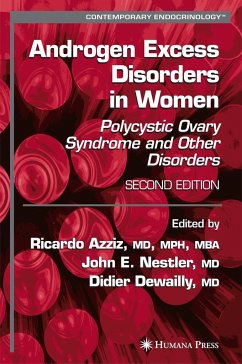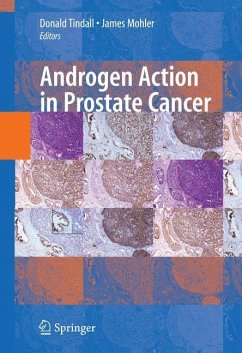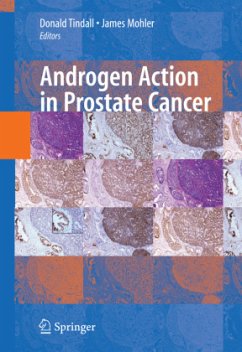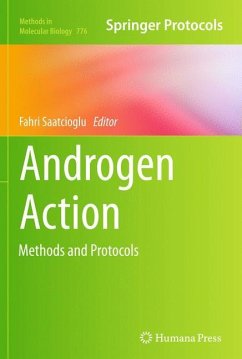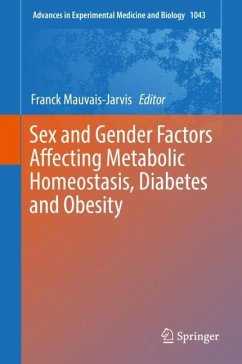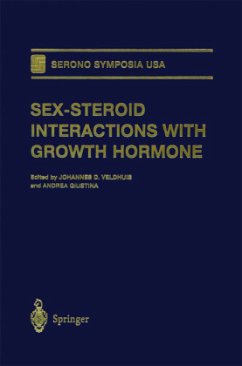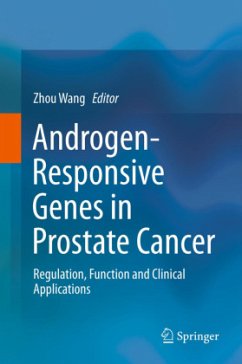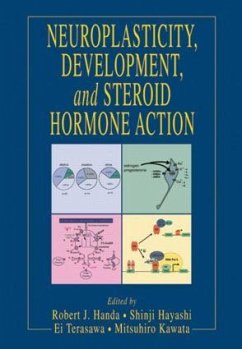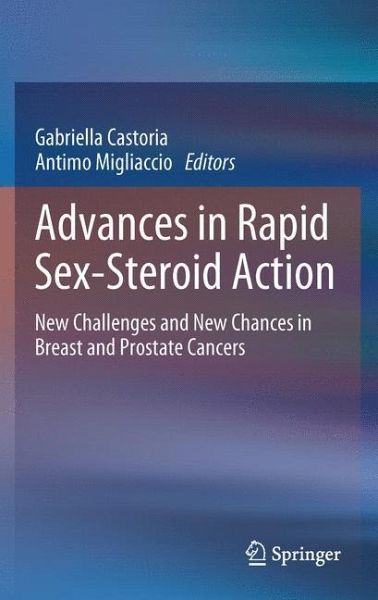
Advances in Rapid Sex-Steroid Action
New Challenges and New Chances in Breast and Prostate Cancers
Herausgegeben: Castoria, Gabriella; Migliaccio, Antimo

PAYBACK Punkte
57 °P sammeln!
Breast and prostate cancers are both hormone-dependent, at least in some stages of their progression. Hormonal manipulation represents an important therapeutic approach. Although most of breast and prostate cancers initially respond to hormone therapy, most tumors reinitiate to growth. Finally, hormone-resistant and metastatic breast and prostate cancers may develop. Thus, the challenge is the dissection of mechanisms by which steroid receptor signaling pathways continue to influence cell growth and invasiveness. Compelling evidence indicates that steroid hormones elicit non-genomic responses ...
Breast and prostate cancers are both hormone-dependent, at least in some stages of their progression. Hormonal manipulation represents an important therapeutic approach. Although most of breast and prostate cancers initially respond to hormone therapy, most tumors reinitiate to growth. Finally, hormone-resistant and metastatic breast and prostate cancers may develop. Thus, the challenge is the dissection of mechanisms by which steroid receptor signaling pathways continue to influence cell growth and invasiveness. Compelling evidence indicates that steroid hormones elicit non-genomic responses in extra-nuclear compartment of target cells. In this cellular location, steroid-coupled receptors rapidly recruit signaling effectors or scaffold proteins and activate multiple pathways leading to proliferation, survival, migration and invasiveness. The immediate challenge is the dissection of key events regulating the steroid response of target tissues to prevent progression and improve treatment of breast and prostate cancers. Rapid actions of sex steroids play a critical role in mediating the biological outcome of target tissues. This book reviews the importance of these non-genomic effects in initiation and progression of breast and prostate cancers.
Particular emphasis is placed on discussing how rapid steroid actions not only impact disease development and response to conventional therapies for these two types of cancers, but have also led to the identification of potential new therapeutic targets and treatment possibilities for cancer patients. The book reviews the fundamental basis of target development and the current status of these studies, which are providing valuable insights in key areas of breast and prostate cancers.
Particular emphasis is placed on discussing how rapid steroid actions not only impact disease development and response to conventional therapies for these two types of cancers, but have also led to the identification of potential new therapeutic targets and treatment possibilities for cancer patients. The book reviews the fundamental basis of target development and the current status of these studies, which are providing valuable insights in key areas of breast and prostate cancers.
Particular emphasis is placed on discussing how rapid steroid actions not only impact disease development and response to conventional therapies for these two types of cancers, but have also led to the identification of potential new therapeutic targets and treatment possibilities for cancer patients. The book reviews the fundamental basis of target development and the current status of these studies, which are providing valuable insights in key areas of breast and prostate cancers.
Particular emphasis is placed on discussing how rapid steroid actions not only impact disease development and response to conventional therapies for these two types of cancers, but have also led to the identification of potential new therapeutic targets and treatment possibilities for cancer patients. The book reviews the fundamental basis of target development and the current status of these studies, which are providing valuable insights in key areas of breast and prostate cancers.





